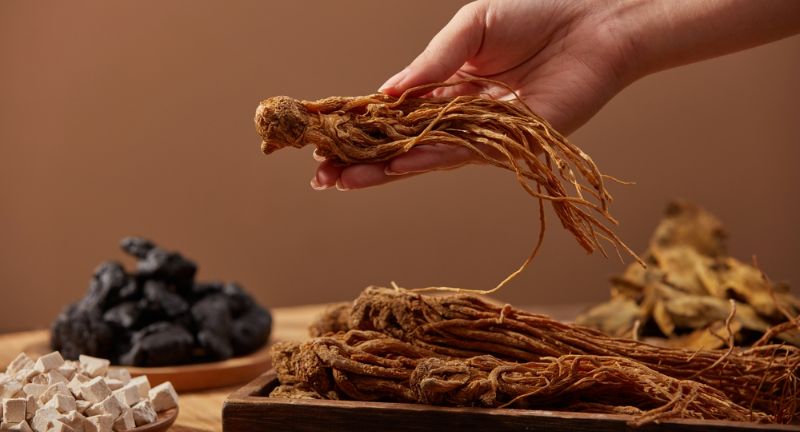
Shutterstock
Chinese herbal medicine has been used for thousands of years to promote health, balance, and vitality. These herbs offer a wide range of benefits, from boosting the immune system to enhancing mental clarity and reducing stress. Whether you’re looking to improve digestion, support your respiratory system, or nourish your skin, there is a Chinese herb that can help. By understanding the unique properties of these herbs, you can incorporate them into your daily routine to maintain overall well-being. Let’s explore 25 powerful Chinese herbs and the amazing health benefits they provide.
Ginseng (Ren Shen)

Shutterstock
Ginseng is one of the most revered herbs in Chinese medicine, prized for its ability to boost energy, improve mental clarity, and reduce stress. It is often used by those who feel fatigued or overwhelmed to enhance vitality and overall well-being. Ginseng also supports the immune system and has potent anti-inflammatory properties, making it beneficial for long-term health. As an adaptogen, it helps the body cope with various forms of stress, promoting balance and resilience.
Ginger (Sheng Jiang)

Shutterstock
Ginger is a warming herb widely used in Chinese herbal medicine to support digestion and alleviate nausea. It is particularly effective in improving circulation and relieving cold-related symptoms, making it a go-to remedy for colds and flu. Ginger’s potent anti-inflammatory and antioxidant properties are also beneficial for joint health, reducing pain and swelling. Its versatility makes it a popular choice in teas, decoctions, and herbal formulas aimed at enhancing digestive health and overall wellness.
Astragalus (Huang Qi)
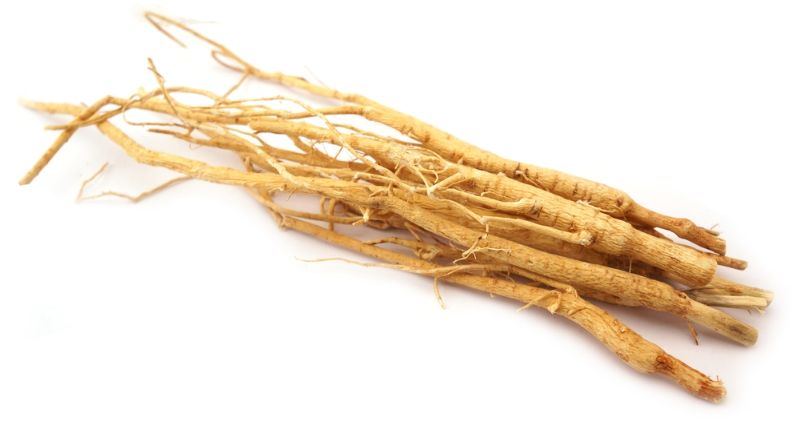
Shutterstock
Astragalus is highly regarded for its immune-boosting properties and is commonly used to help the body fight off infections and diseases. It is also known for enhancing energy and supporting lung function, making it a popular herb for those who feel fatigued or experience frequent colds. Astragalus helps regulate blood sugar levels and improves the body’s response to stress, promoting overall health and vitality. As an adaptogen, it strengthens the body’s ability to cope with stress and improves stamina over time.
Licorice Root (Gan Cao)

Shutterstock
Licorice root is known as a harmonizing herb in Chinese medicine, often used to balance the effects of other herbs in a formula. It has anti-inflammatory, antiviral, and soothing properties, making it a popular remedy for sore throats and respiratory infections. Licorice root also supports digestive health, helping to relieve gastritis and ulcers by reducing stomach acid and inflammation. Its ability to relieve stress and enhance adrenal function makes it a valuable herb for managing chronic fatigue and boosting overall energy.
Goji Berries (Gou Qi Zi)
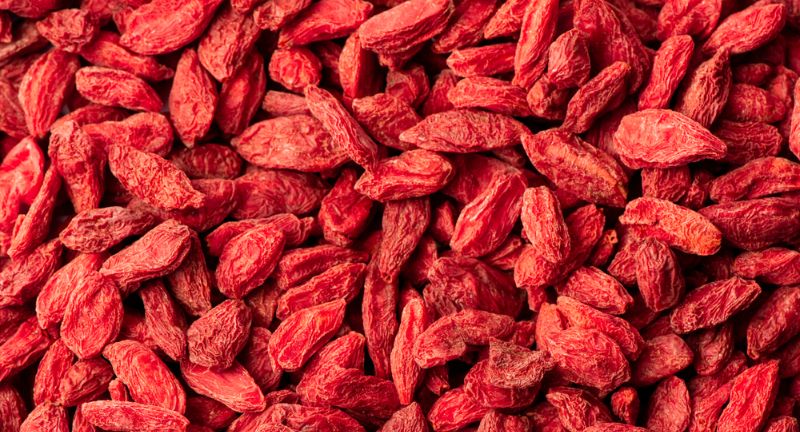
Shutterstock
Goji berries are packed with antioxidants and are widely used in Chinese medicine to support eye health, boost the immune system, and promote longevity. These vibrant red berries are also believed to nourish the liver and kidneys, vital organs for maintaining overall energy and vitality. In addition to their health benefits, goji berries are thought to improve skin health and contribute to a youthful complexion. Their sweet, pleasant taste makes them a popular addition to teas, soups, and herbal tonics.
Rehmannia (Di Huang)
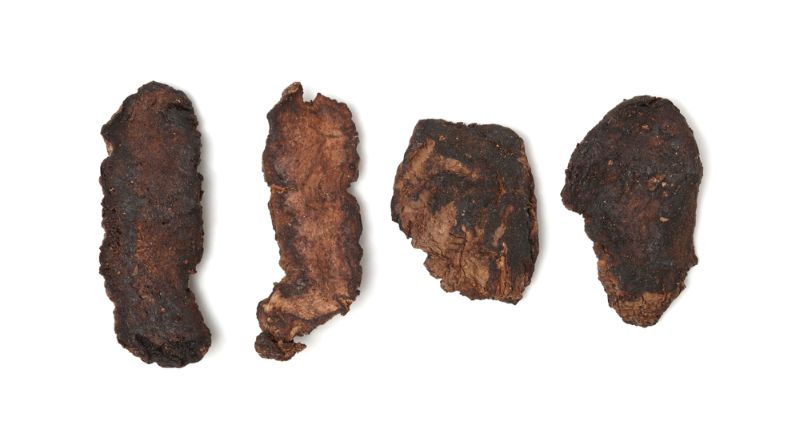
Shutterstock
Rehmannia is a powerful tonic herb that is commonly used to nourish the blood and yin energy in Chinese medicine. It is particularly beneficial for supporting kidney health, promoting healthy aging, and alleviating symptoms associated with menopause. Rehmannia also enhances the immune system and helps the body recover from chronic fatigue or illness. Its deeply nourishing properties make it a key ingredient in formulas aimed at restoring balance and vitality.
Schisandra (Wu Wei Zi)
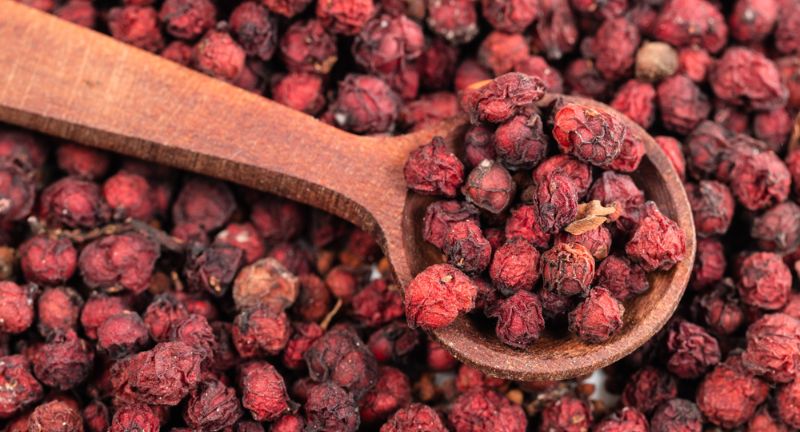
Shutterstock
Schisandra is an adaptogenic herb known for its ability to enhance physical and mental performance, particularly under stress. It supports liver health, improves endurance, and is commonly used to balance yin and yang energies in the body. Schisandra’s powerful antioxidant properties make it a popular choice for promoting longevity, improving skin health, and enhancing overall vitality. This versatile herb is often included in tonics designed to increase energy and resilience.
Chinese Angelica (Dang Gui)

Shutterstock
Chinese Angelica, or Dang Gui, is one of the most important herbs for women’s health in Chinese medicine. It is commonly used to nourish and invigorate the blood, regulate menstrual cycles, and alleviate menstrual pain. Dang Gui also has anti-inflammatory and antioxidant properties, making it beneficial for promoting healthy skin and reducing signs of aging. Its ability to enhance circulation and balance hormones makes it a vital herb for supporting overall vitality and well-being.
Cordyceps (Dong Chong Xia Cao)
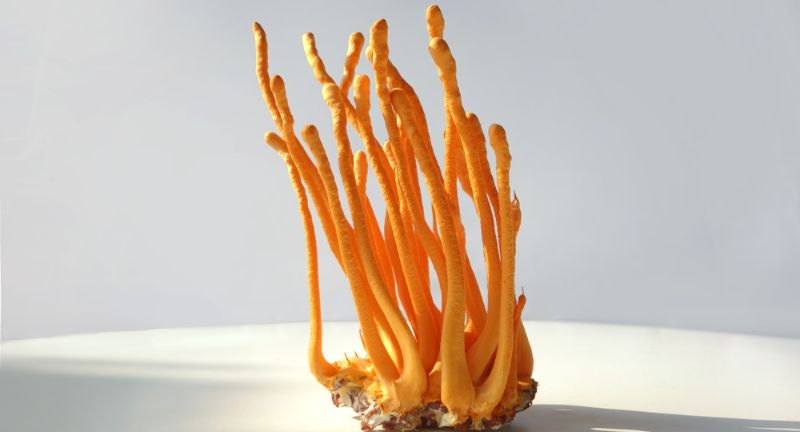
Shutterstock
Cordyceps is a unique medicinal fungus renowned for its ability to boost energy, stamina, and lung function. It is frequently used by athletes and those looking to enhance their physical performance and fight fatigue. In traditional Chinese medicine, cordyceps is also used to support kidney health, improve libido, and enhance overall vitality. Its powerful adaptogenic properties make it an ideal choice for those seeking to increase their resilience and endurance.
White Peony (Bai Shao)
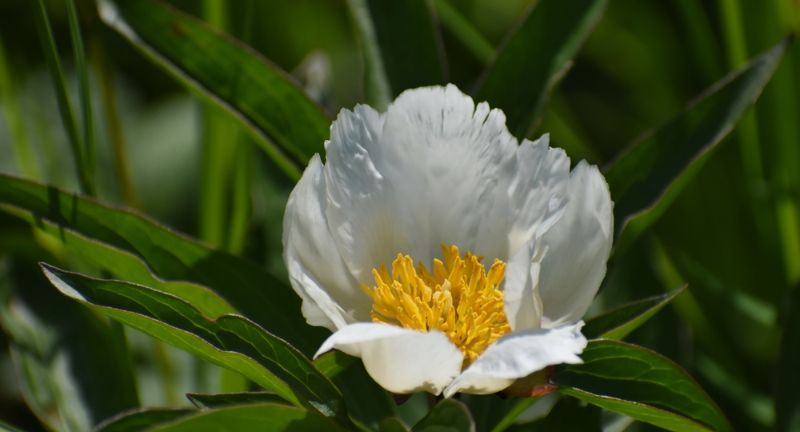
Shutterstock
White Peony is often used in Chinese medicine for its ability to nourish the blood and soothe the liver. It is a key herb for women’s health, helping to regulate menstrual cycles, reduce menstrual pain, and alleviate symptoms related to hormonal imbalances. White Peony also helps to calm the nervous system, making it beneficial for reducing stress and promoting relaxation. Its ability to balance and nourish the body makes it a favorite in formulas aimed at supporting reproductive health and emotional well-being.
Chrysanthemum (Ju Hua)
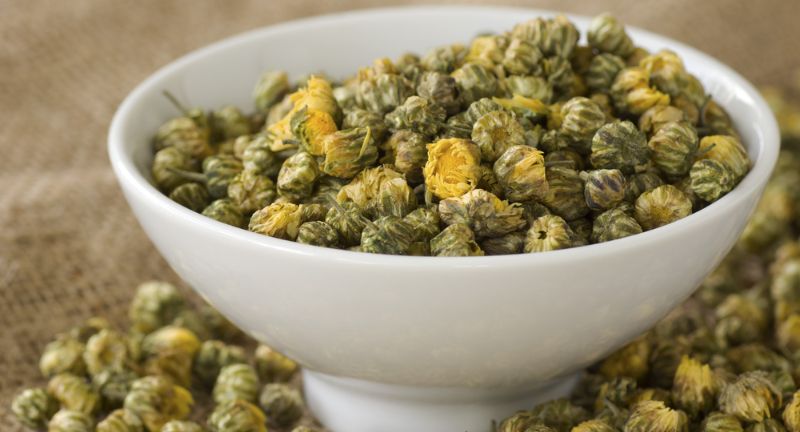
Shutterstock
Chrysanthemum flowers are commonly used in Chinese herbal medicine for their cooling and anti-inflammatory properties. They are particularly effective in treating eye conditions, reducing fevers, and soothing headaches. Chrysanthemum tea is a popular remedy for eye strain and clearing liver heat, offering a gentle detoxifying effect. Additionally, its antioxidant properties contribute to overall health and support the immune system, making it a refreshing and beneficial addition to daily wellness routines.
Hawthorn Berry (Shan Zha)
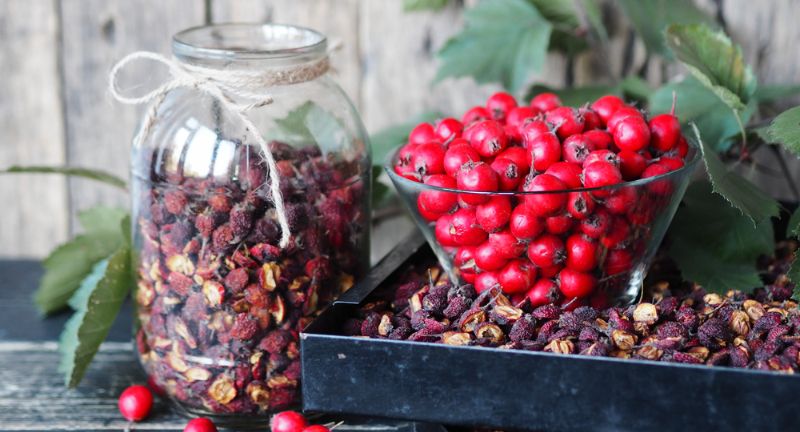
Shutterstock
Hawthorn berries are highly regarded in Chinese medicine for their ability to support cardiovascular health and improve digestion. They are often used to lower blood pressure, reduce cholesterol levels, and prevent heart disease. Additionally, hawthorn berries aid in relieving indigestion and bloating, particularly after consuming rich or heavy meals. Their high antioxidant content contributes to their ability to protect the heart and improve overall health.
Chinese Skullcap (Huang Qin)
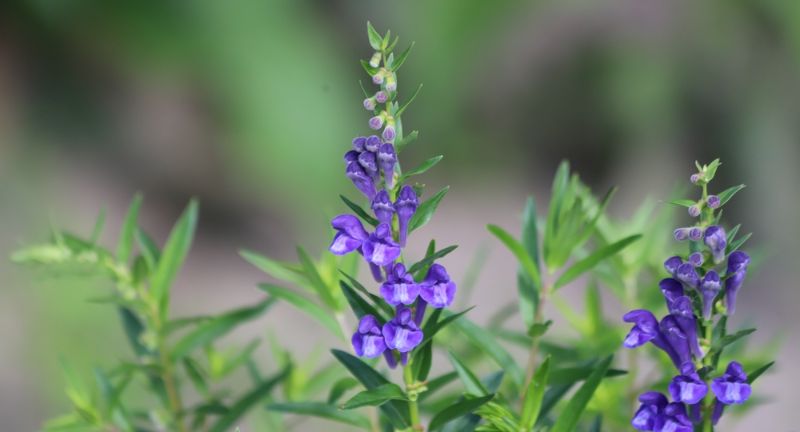
Shutterstock
Chinese Skullcap is a potent herb known for its anti-inflammatory and antioxidant properties, making it effective for treating respiratory infections and allergies. It is often used to support liver health and promote detoxification, helping to clear heat and reduce inflammation in the body. Skullcap is also used to treat conditions like fever, cough, and sinusitis, making it a go-to herb for clearing congestion. Its ability to promote liver function and reduce toxicity makes it valuable for maintaining overall health.
Eucommia Bark (Du Zhong)
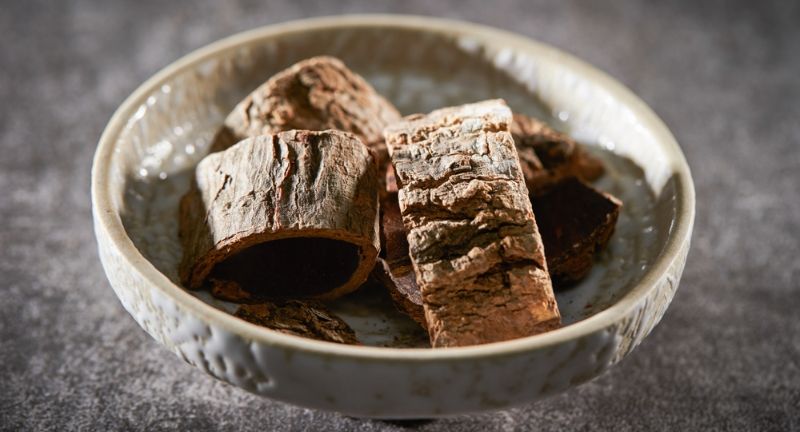
Shutterstock
Eucommia bark is widely used in Chinese medicine to strengthen bones and joints, making it a key herb for treating conditions related to the lower back and knees. It is commonly prescribed to relieve pain, promote healing after injuries, and support overall joint health. Eucommia is also believed to strengthen the kidneys, which are closely associated with the health of bones and joints in Chinese medicine. This herb is often included in formulas that promote vitality and longevity by supporting the body’s structural integrity.
Lotus Seed (Lian Zi)
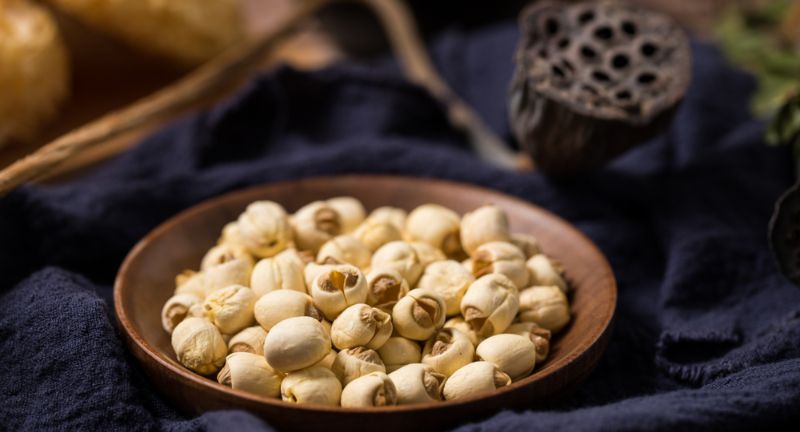
Shutterstock
Lotus seeds are cherished in Chinese medicine for their calming effects on the mind and ability to nourish the heart. They are frequently used to treat insomnia, anxiety, and restlessness, promoting a sense of peace and mental clarity. Lotus seeds are also beneficial for digestive health, helping to stop diarrhea and improve overall digestive function. Their soothing properties make them a valuable ingredient in tonics designed to balance emotions and promote mental well-being.
Fritillaria (Chuan Bei Mu)
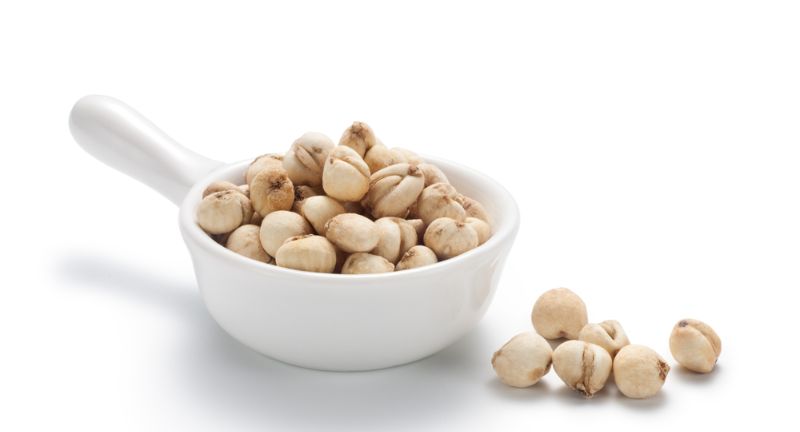
Shutterstock
Fritillaria is a valuable herb for treating respiratory conditions, particularly those involving chronic coughs and phlegm. It is often used to clear heat and resolve mucus, making it beneficial for conditions like bronchitis and persistent lung congestion. Fritillaria also nourishes the lungs, helping to alleviate dry coughs and improve overall respiratory health. This herb is frequently included in formulas for individuals dealing with chronic or stubborn respiratory issues.
Dandelion (Pu Gong Ying)

Shutterstock
Dandelion is a powerful detoxifying herb that is commonly used to support liver health and clear heat from the body. It is especially effective at promoting the elimination of toxins and reducing inflammation, making it a popular choice for treating skin conditions and digestive issues. Dandelion also acts as a natural diuretic, helping to reduce water retention and flush out excess fluids. Its ability to support liver function and improve digestion makes it a valuable addition to herbal formulas for cleansing and detoxification.
Mugwort (Ai Ye)
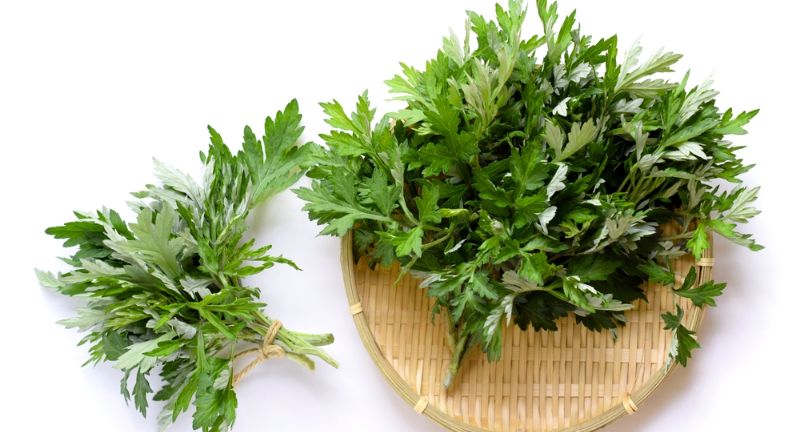
Shutterstock
Mugwort is known for its warming and stimulating properties, often used to promote circulation and relieve pain. It is commonly used in moxibustion therapy, where the herb is burned near acupuncture points to stimulate healing and improve energy flow. Mugwort is also beneficial for regulating menstruation, relieving menstrual cramps, and promoting fertility. Its warming qualities make it a key herb for treating conditions related to cold, poor circulation, and digestive stagnation.
Job’s Tears (Yi Yi Ren)
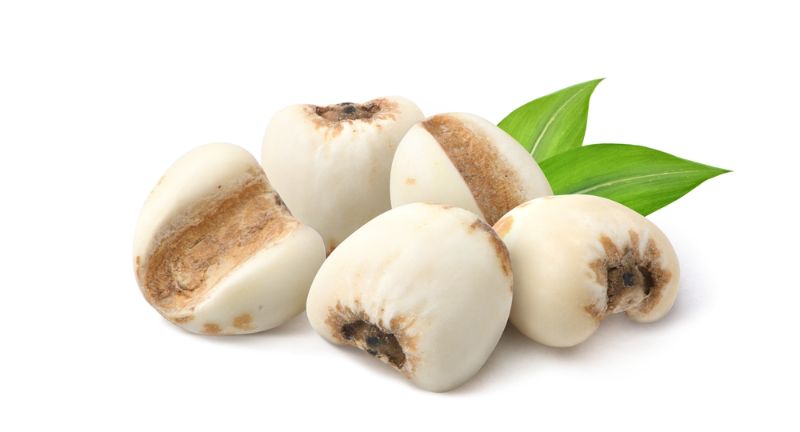
Shutterstock
Job’s Tears is frequently used in Chinese medicine to promote digestive health and reduce dampness in the body. It is particularly effective for treating conditions like diarrhea, bloating, and edema by clearing excess fluids and moisture. Job’s Tears also supports lung health and is often used to treat respiratory infections, making it a versatile herb for both digestive and respiratory support. Its ability to strengthen the digestive system and eliminate dampness makes it a valuable tool for maintaining overall balance in the body.
Polygonum (He Shou Wu)
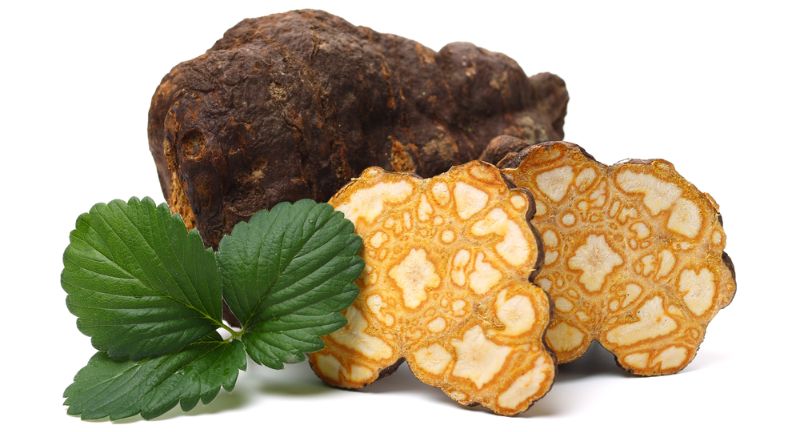
Shutterstock
Polygonum, also known as He Shou Wu, is renowned in Chinese medicine for its ability to promote longevity, enhance vitality, and slow the aging process. It is often used to nourish the liver and kidneys, improve hair health, and support fertility. This herb is also known for its ability to restore energy and vitality, making it a key ingredient in formulas designed to promote overall health and well-being. He Shou Wu is often used in tonics aimed at enhancing longevity, restoring vitality, and promoting youthful vigor.
Tangerine Peel (Chen Pi)
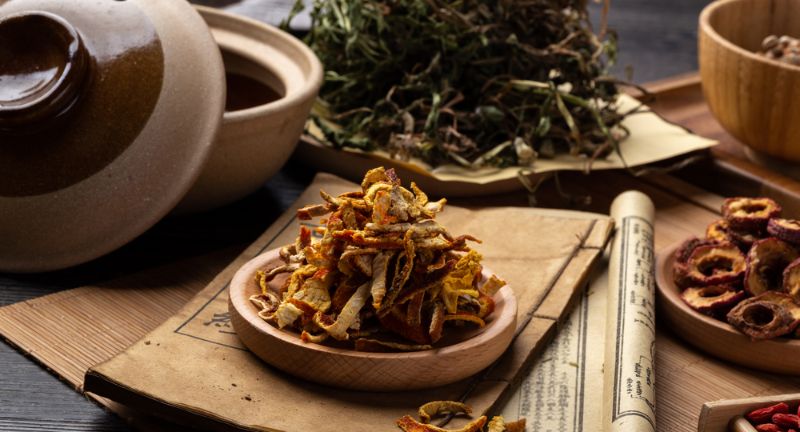
Shutterstock
Tangerine peel is a widely used herb in Chinese medicine for improving digestion and regulating the flow of qi in the body. It is particularly effective in relieving bloating, indigestion, and nausea, making it a popular remedy for digestive complaints. Tangerine peel also has anti-inflammatory and antioxidant properties, helping to promote overall health and support respiratory function. Its warming and aromatic qualities make it an essential herb for improving digestion and enhancing the body’s ability to eliminate excess moisture and phlegm.
Chinese Yam (Shan Yao)
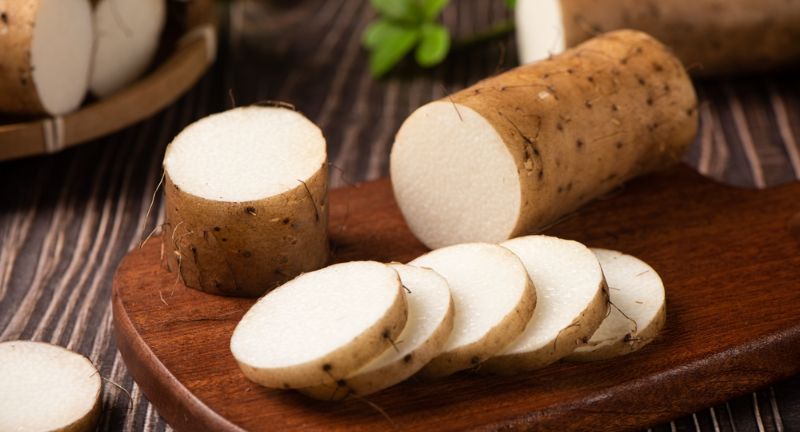
Shutterstock
Chinese Yam is widely used in Chinese medicine to support digestion, strengthen the spleen and stomach, and enhance lung health. It is frequently included in formulas aimed at promoting vitality, improving digestion, and balancing the body’s energy. Chinese Yam is also known for its ability to regulate blood sugar levels and is commonly used to treat diabetes and improve energy levels. Its nourishing and restorative qualities make it a key herb for supporting overall health and promoting long-term vitality.
Bupleurum (Chai Hu)
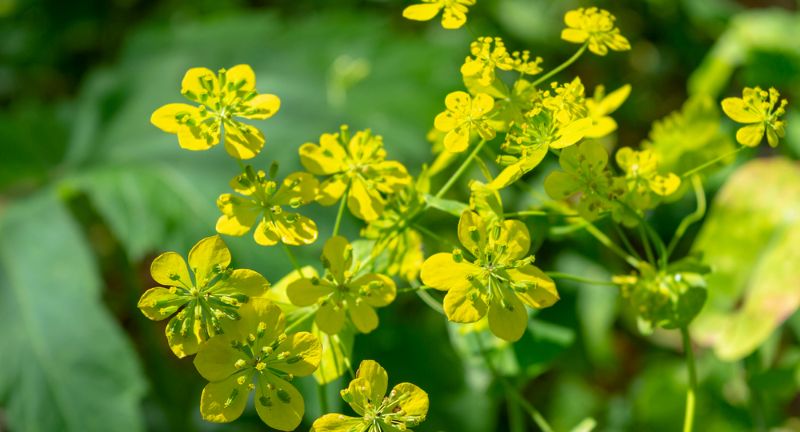
Shutterstock
Bupleurum is known for its ability to move stagnant qi, particularly in the liver, making it a vital herb for promoting emotional balance and relieving stress. It is commonly used to treat conditions like irritability, hormonal imbalances, and digestive issues by promoting the smooth flow of energy throughout the body. Bupleurum is also effective in treating fevers and colds by clearing heat and helping the body release excess tension. Its ability to promote emotional well-being and physical health makes it a key herb in many traditional Chinese formulas.
Conclusion
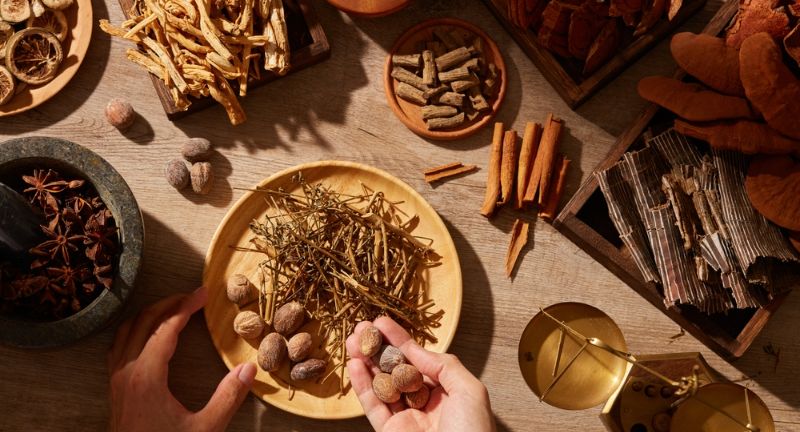
Shutterstock
Chinese herbal medicine offers a natural way to support your health and well-being. Each of these herbs has unique properties that can help balance the body, strengthen the immune system, and enhance vitality. Incorporating these powerful herbs into your daily routine can lead to lasting health benefits, both physically and mentally. Whether you’re looking for more energy, better digestion, or improved stress management, Chinese herbal remedies provide time-tested solutions. As always, it’s important to consult with a healthcare professional before adding new herbs to your routine to ensure they are right for you.



















































